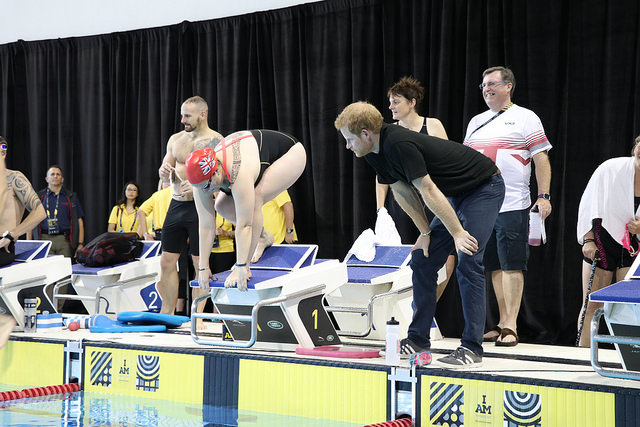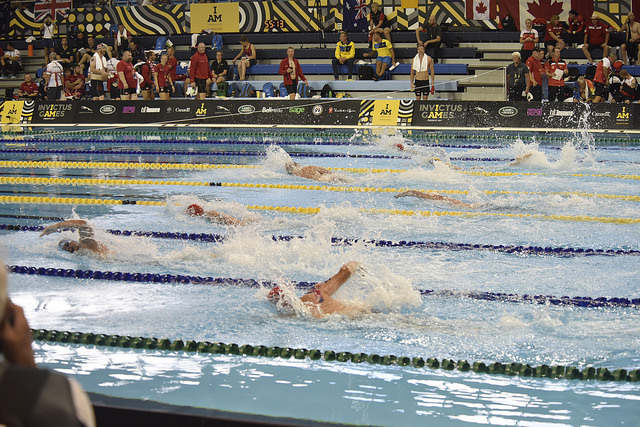The swimming finals saw competitors with a wide range of abilities take to the pool in front of an enthusiastic crowd that included Prince Harry and four-time Canadian Olympic medallist Penny Oleksiak.
The 17-year-old Invictus Games ambassador said she experienced a new level of inspiration as she presented the medals for the night’s events.
“I think just to meet people who have gone through so much and they still come here,” Penny said. “They’re as happy as ever and they’re competing. It’s amazing.” She was also impressed with how supportive the teams are of each other. “I know at the Olympics no one is going up the pool and cheering me on when I’m racing, and I think it’s awesome just to see that.”

Multiple competitors won across several events, including Team Australia’s Sonya Newman, who took home three silver medals and a gold. After having her right leg amputated below the knee due to a staph infection resulting from 15 different operations, she has been “chasing the black line” at the bottom of the pool every day of her rehabilitation. Swimming helps her stave off a “darkness that plagues her,” she said. And it worked — she left her wheelchair on the pool deck and became a racer and a multiple medallist.
Canadian Mireille Poulin finished the day with three gold medals in the ISC 50m freestyle, ISC 100m freestyle and ISC 50m breaststroke, and a silver in the ISC 50m backstroke.
Ryan Major of the United States gave fans a reason to wildly applaud. He is relatively new to competitive swimming and with amputated legs and limited use of his right arm is still refining his swimming stroke.
He fell behind the other finishers in the men’s ISA 50-metre backstroke, when his core began sinking lower in the water as fatigue set in. As he inched toward the wall, Ryan said the cheering crowd lifted him up, enabling him to finish.
“I heard them. I heard them all,” he said. “It’s just amazing to have so many people have my back and other veterans like myself. It’s awesome.”

Canadian double-medallist Kelly Scanlan said winning felt nice, but the personal triumph was supreme.
“I wasn’t competing against the other countries, I wasn’t competing against the other teams,” she said. “I was competing against the other me from one year ago when I was struggling. When I was broken. When I really didn’t see a future down the road for me. So I just kind of look back on who that other person was and I ask myself, ‘could she beat me today?’ and I know she couldn’t, so that’s what it was for me.”


